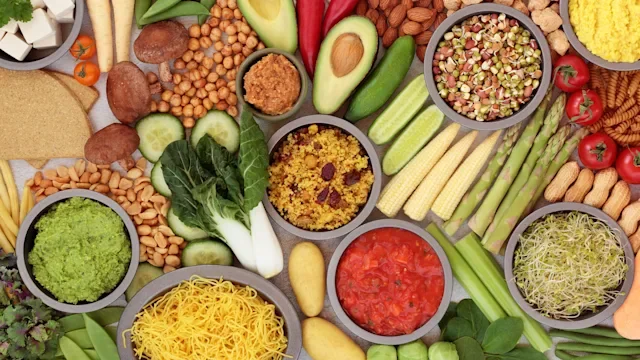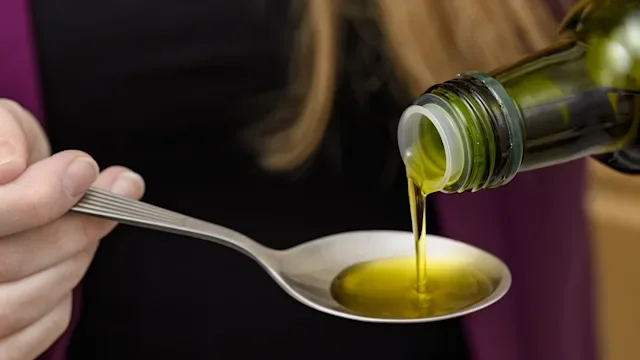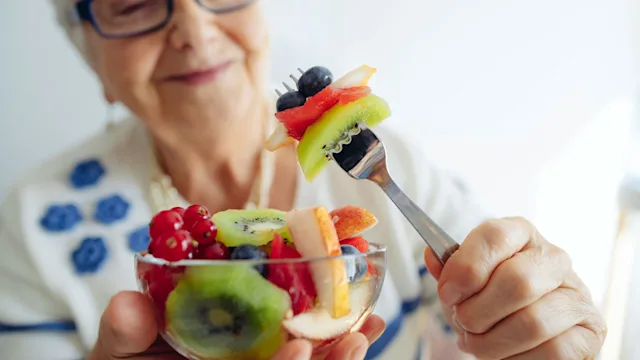Key takeaways:
Cranberry juice provides vitamin C and other antioxidants that support immune health, reduce inflammation, and benefit your skin.
Some research suggests cranberry juice may help prevent urinary tract infections (UTIs). But it doesn’t help with active infections, aside from providing hydration.
To avoid added sugar, choose 100% pure, unsweetened cranberry juice, instead of juices labeled “cranberry cocktail.”
Cranberry juice is known for its tart flavor and vibrant, deep red hue. And it may be equally known for its versatility. It’s a popular juice to add to sparkling water or mocktails — or just sip on its own. But cranberry juice is also full of nutrients. It offers several health benefits, like strengthening your immune system and keeping your urinary tract healthy.
Let’s take a look at what science says about cranberry juice’s benefits for health.
1. Source of vitamin C
Cranberries are an excellent source of vitamin C (ascorbic acid), which plays many critical roles in your body, including:
Supporting a strong immune system
Helping your body to absorb iron
Helping to produce collagen, a protein needed for healthy skin and wound-healing
Reducing inflammation
Acting as an antioxidant to protect your body’s cells from damage
The amount of vitamin C in cranberry juice varies. Pure 100% cranberry juice doesn’t contain added vitamin C. It naturally has about 26% of your daily value (DV) of vitamin C (24 mg).
Some cranberry juice brands contain added vitamin C to ensure you get 100% of your daily vitamin C in each 1 cup serving. These juices are usually called “cranberry juice blend” or “cranberry cocktail,” and they often contain added sugars.
2. Provides a variety of antioxidants
Cranberry juice is full of antioxidants. Antioxidants are nutrients that protect your body’s cells from damage caused by unstable molecules called free radicals. When too many free radicals build up in the body, it can cause oxidative stress.
Oxidative stress increases your risk of chronic conditions like:
Type 2 diabetes
Heart disease
Some cancers
Alzheimer’s disease
Parkinson’s disease
Cranberry juice contains several types of antioxidants, including anthocyanins and flavones. It’s good to get a variety of antioxidants in the diet, since each type provides different benefits. For example, anthocyanins are linked to better heart health, and flavones have anti-cancer benefits.
How to get rid of a urinary tract infection (UTI): Treatment for UTIs usually requires antibiotics. In addition to medication, there are things you can do at home to help with your symptoms.
Foods for kidney health: Your kidneys filter your blood and remove waste from your body. Oily fish, berries, and leafy greens are among the foods that help keep your kidneys in top shape.
What are the healthiest juices? The most nutritious juices contain 100% juice and plenty of vitamins and minerals. Pomegranate, beet, and tomato juice are some of the healthiest juices to drink.
3. UTI prevention
Research suggests that cranberry juice helps prevent the growth of E. coli, the group of bacteria that commonly causes urinary tract infections (UTIs). This doesn’t mean that drinking cranberry juice while you have a UTI can treat UTIs or relieve symptoms. But it may help prevent them in the future.
A meta-analysis of 20 studies showed a lower rate of UTIs in people who drank cranberry juice daily compared to those who didn’t drink it. But it’s important to note that the study’s authors rated the evidence as “moderate to low certainty,” so more studies are needed to know for sure.
4. Support kidney health
Some UTIs can travel up the urinary tract and infect the kidneys. This is a condition called pyelonephritis. Researchers think that cranberry juice may prevent harmful bacteria from sticking to the kidney walls, helping prevent pyelonephritis. This may be a reason to drink cranberry juice while you have a UTI. It won’t necessarily help with symptoms (except for providing hydration), but it may help protect your kidneys.
Unsweetened cranberry juice is the best choice. Sweetened juice has too much sugar, which can increase blood sugar and blood pressure levels and harm your kidneys.
Cranberry juice nutrients
Below is the nutrition information for 100% pure, unsweetened cranberry juice compared to sugar-sweetened cranberry juice (often called “cranberry cocktail”).
Cranberry cocktail (1 cup) | ||
Calories | 80 calories | 110 calories |
Fat | 0 g | 0 g |
Total carbohydrate Natural Sugar Added Sugar | 19 g 11 g 0 g | 28 g 25 g 23 g |
Protein | 1 g | 0 g |
You can see that unsweetened cranberry juice has fewer calories and carbohydrates than cranberry cocktail. And it contains no added sugar, just natural sugar from cranberries.
How to choose the best cranberry juice
The American Heart Association recommends limiting how much added sugar you get from foods and sugar-sweetened beverages. Consuming high amounts of sugar is linked to overweight and obesity, which increases your risk of heart disease and some types of cancer.
So, your first step in choosing a cranberry juice is to look for the phrase “100% pure cranberry juice.” This means it contains no added sugar. The only ingredient listed on the label should be cranberry juice.
If 100% cranberry juice is too tart for your taste, try mixing it with sparkling water and a squeeze of fresh orange or lime juice.
What about artificial sweeteners?
Some cranberry juices include artificial sweeteners, like sucralose or aspartame. These sweeteners are sugar-free and have few or zero calories. So, though these may seem like better options than added sugar, they probably aren’t. Studies have linked artificial sweeteners to weight gain, poor blood sugar control, and changes to the gut microbiome.
Who should limit or avoid cranberry juice?
100% cranberry juice is a nutritious drink that poses no health risk for most people. But certain people may need to use caution with cranberry juice.
You may need to limit or avoid cranberry juice in these scenarios:
You have or are prone to kidney stones. Cranberry juice can lead to certain types of kidney stones because of its oxalate levels.
You take blood thinners. Blood thinners, like warfarin, may increase the risk of bleeding when taken with cranberry juice.
You take certain medications. Cranberry juice may increase the effect of certain medications for lowering blood pressure or cholesterol, including atorvastatin (for cholesterol) and nifedipine (for blood pressure).
If you fall into any of these categories, it’s a good idea to check in with a healthcare professional to see if you need to limit or avoid cranberry juice.
Frequently asked questions
Cranberries contain magnesium, and magnesium may improve period cramps. But clinical studies on magnesium supplements for cramps use doses of 150 mg to 300 mg of magnesium. Cranberry juice has just 15 mg magnesium per cup. There’s no evidence that this amount of magnesium can help reduce pain from menstrual cramps.
Since cranberry juice may help prevent UTIs, some people might wonder if it prevents vaginal yeast infections, too. But yeast infections are a type of fungal infection. This is different from a UTI, which is caused by bacteria. And there isn’t evidence to suggest that cranberry juice can help with yeast infections.
Cranberry juice isn’t usually considered a laxative, and there isn’t research to support this specific use. Cranberry juice also doesn’t contain a meaningful amount of fiber, which is the main nutrient that helps you poop. But getting enough fluid is an important way to soften stool and prevent constipation. And cranberry juice is mostly fluid, so it’s hydrating. In this way, it indirectly helps with having regular poops.
Cranberries contain magnesium, and magnesium may improve period cramps. But clinical studies on magnesium supplements for cramps use doses of 150 mg to 300 mg of magnesium. Cranberry juice has just 15 mg magnesium per cup. There’s no evidence that this amount of magnesium can help reduce pain from menstrual cramps.
Since cranberry juice may help prevent UTIs, some people might wonder if it prevents vaginal yeast infections, too. But yeast infections are a type of fungal infection. This is different from a UTI, which is caused by bacteria. And there isn’t evidence to suggest that cranberry juice can help with yeast infections.
Cranberry juice isn’t usually considered a laxative, and there isn’t research to support this specific use. Cranberry juice also doesn’t contain a meaningful amount of fiber, which is the main nutrient that helps you poop. But getting enough fluid is an important way to soften stool and prevent constipation. And cranberry juice is mostly fluid, so it’s hydrating. In this way, it indirectly helps with having regular poops.
The bottom line
Cranberry juice is a nutritious drink that contains antioxidants, which can benefit your health in many ways, including improving immunity and fighting inflammation. It may also help prevent urinary tract infections. 100% pure unsweetened cranberry juice is the best cranberry juice to choose.

Why trust our experts?



References
American Heart Association. (2024). Added sugars.
American Institute for Cancer Research. (2021). Sugar-sweetened drinks: Increase risk of obesity and overweight.
Bechara, N., et al. (2022). A systematic review on the role of vitamin C in tissue healing. Antioxidants.
Belyayeva, M., et al. (2024). Acute pyelonephritis. StatPearls.
Gupta, K., et al. (2007). Cranberry products inhibit adherence of P-fimbriated Escherichia coli to primary cultured bladder and vaginal epithelial cells. The Journal of Urology.
Jeong, S. H., et al. (2023). Flavones: The apoptosis in prostate cancer of three flavones selected as therapeutic candidate models. International Journal of Molecular Sciences.
Lakewood. (n.d.). Lakewood organic pure cranberry juice.
Mattioli, R., et al. (2020). Anthocyanins: A comprehensive review of their chemical properties and health effects on cardiovascular and neurodegenerative diseases. Molecules.
Moro, C., et al. (2024). Cranberry juice, cranberry tablets, or liquid therapies for urinary tract infection: A systematic review and network meta-analysis. European Urology Focus.
Nemzer, B. V., et al. (2022). Cranberry: Chemical composition, antioxidant activity, and impact on human health: Overview. Molecules.
Ocean Spray. (n.d.). The original cranberry juice cocktail.
Reddy, V. P. (2023). Oxidative stress in health and disease. Biomedicines.
Shane-McWhorter, L. (2025). Cranberry. Merck Consumer Manual.
Terris, M. K., et al. (2001). Dietary supplementation with cranberry concentrate tablets may increase the risk of nephrolithiasis. Urology.
Yaralizadeh, M., et al. (2024). Effectiveness of magnesium on menstrual symptoms among dysmenorrheal college students: A randomized controlled trial. International Journal of Women’s Health and Reproduction Sciences.














